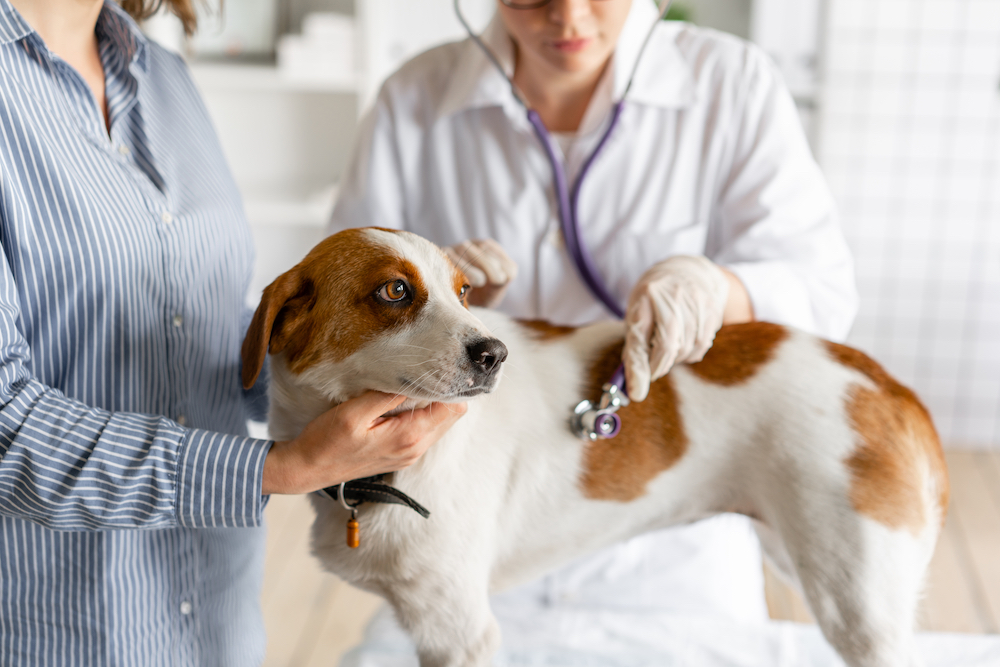As a responsible dog owner, it’s essential to prioritize your furry friend’s health and well-being. One crucial aspect of maintaining your dog’s health is regular veterinary check-ups, which may include a comprehensive exam.
A comprehensive exam for dogs is a thorough medical evaluation that helps identify any potential health issues early on, ensuring prompt treatment and prevention of more severe problems.
What is a Comprehensive Exam for Dogs?
A comprehensive exam for dogs is a thorough medical examination conducted by a veterinarian to assess the overall health and well-being of your furry friend. It is a crucial step in maintaining your dog’s health, detecting potential health issues early, and preventing illnesses.
Why Is A Comprehensive Exam Important?
A comprehensive exam is essential for several reasons:
Early Detection of Health Issues: A comprehensive exam helps identify potential health problems early, allowing for prompt treatment and prevention of further complications.
Preventative Care: Regular comprehensive exams enable veterinarians to provide guidance on preventative care, such as vaccinations, parasite control, and dental care.
Optimal Health Maintenance: A comprehensive exam ensures your dog receives optimal care, leading to a longer, healthier life. (See Also: Is Dogs Allowed In Bus)
What Does A Comprehensive Exam Entail?
A comprehensive exam typically includes the following components:
| Component | Description |
|---|---|
| Physical Examination | A thorough examination of your dog’s body, including the eyes, ears, nose, throat, and skin. |
| Vital Signs | Measurement of your dog’s temperature, pulse, and respiratory rate. |
| Medical History | A review of your dog’s medical history, including vaccinations, illnesses, and medications. |
| Laboratory Tests | Blood tests, urinalysis, and other diagnostic tests to identify potential health issues. |
| Dental Examination | An examination of your dog’s teeth and gums to identify dental problems. |
| Behavioral Assessment | An evaluation of your dog’s behavior and temperament to identify potential behavioral issues. |
How Often Should My Dog Have A Comprehensive Exam?
The frequency of comprehensive exams depends on your dog’s age, health status, and lifestyle:
- Puppies: Every 3-4 months until they are 1 year old.
- Adult Dogs: At least once a year, but more frequently if they have chronic health issues or are taking medication.
- Senior Dogs: Every 6-12 months, as they are more prone to age-related health issues.
What To Expect During A Comprehensive Exam
During a comprehensive exam, your veterinarian will:
- Ask questions about your dog’s medical history, diet, and lifestyle.
- Perform a physical examination, including a review of vital signs.
- Conduct laboratory tests, such as blood work and urinalysis.
- Provide guidance on preventative care, such as vaccinations and parasite control.
- Discuss any health concerns or issues identified during the exam.
Remember, a comprehensive exam is not just a routine check-up, but a thorough assessment of your dog’s health that can help identify potential issues early, prevent illnesses, and promote optimal health.
By prioritizing your dog’s health and scheduling regular comprehensive exams, you can help your furry friend live a longer, happier, and healthier life.

Frequently Asked Questions About Comprehensive Exams for Dogs
What is a comprehensive exam for dogs?
A comprehensive exam for dogs is a thorough medical examination performed by a veterinarian to assess the overall health and well-being of your dog.
It typically includes a physical examination, review of medical history, and diagnostic tests to identify any potential health issues early on.
How often should my dog have a comprehensive exam?
The frequency of comprehensive exams for dogs depends on their age, health status, and lifestyle. Puppies and senior dogs may require more frequent exams, while healthy adult dogs may need an annual exam. Your veterinarian can recommend the best schedule for your dog based on their individual needs.
What does a comprehensive exam for dogs typically include?
A comprehensive exam for dogs typically includes a physical examination, which may involve checking vital signs, such as temperature, pulse, and respiration rate, as well as examining the eyes, ears, nose, throat, and skin.
The veterinarian may also perform diagnostic tests, such as blood work, urinalysis, and imaging studies, to identify any underlying health issues.
Can a comprehensive exam help prevent health problems in my dog?
Yes, a comprehensive exam can help prevent health problems in your dog by identifying potential issues early on, allowing for prompt treatment and prevention of more serious problems.
Regular exams can also help detect diseases, such as heartworms, fleas, and ticks, and prevent the spread of diseases through vaccinations and parasite control.
How long does a comprehensive exam for dogs typically take?
The length of a comprehensive exam for dogs can vary depending on the individual dog’s needs and the veterinarian’s schedule.
On average, a comprehensive exam can take anywhere from 30 minutes to an hour, but may take longer if additional diagnostic tests are required or if the veterinarian needs to discuss treatment options with you.
